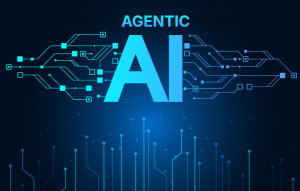Artificial intelligence (AI) has rapidly become a driving force in the modern business world, reshaping industries and offering unprecedented opportunities for professionals. Whether you’re a seasoned business owner or a budding entrepreneur, a marketing guru, or a career-focused professional, the potential of AI is immense.
AI is instrumental in numerous business domains, such as marketing, finance, healthcare, logistics, and beyond. It can help you make data-driven decisions, personalize customer experiences, automate routine tasks, and even predict market trends. These capabilities revolutionize how you operate your business and compete. This makes AI a valuable asset for companies of all sizes.
Benefits of AI for business
The integration of AI into business settings provides a wide range of advantages, including:
- Increased productivity
- Automation of repetitive tasks
- Optimizing processes
- Reduced operational costs
Additionally, AI leads to an improved customer experience by personalizing interactions and offering 24/7 support through chatbots. Moreover, AI drives innovation, enabling the development of new products and services that were previously unimaginable, resulting in a competitive edge and expanded market opportunities. Join us on this journey as we decode how to use AI, delve into its real-world use cases, and empower you to succeed in the AI-powered landscape of business.
A few success stories and statistics about AI integration
Netflix: Netflix uses AI to recommend movies and TV shows to its users. This has helped Netflix increase customer engagement and reduce churn.
Amazon: Amazon uses AI to personalize the customer experience, optimize its supply chain, and develop new products. This has helped Amazon become one of the most successful retailers in the world.
Salesforce: Salesforce uses AI to help its customers sell more effectively. For example, Salesforce’s AI-powered Einstein platform can help sales reps identify qualified leads and predict which leads are most likely to convert.
A study by McKinsey & Company found that AI has the potential to boost global economic output by up to $13 trillion by 2030.
Identifying opportunities for AI implementation
1. Data-intensive tasks
One of the most promising areas for AI implementation is in tasks that involve large volumes of data. AI excels at data analysis, making it a natural fit for industries such as finance, where it can be used for risk assessment and fraud detection. Retail is another example, as AI can analyze customer purchasing behavior to improve inventory management and optimize product recommendations.
2. Repetitive and rule-based processes
AI is designed to automate repetitive and rule-based tasks, freeing up human resources for more complex and creative endeavors. Manufacturing and assembly line processes, for instance, have adopted AI-powered robots for precision work, resulting in higher production efficiency and fewer errors.
3. Customer service and support
Businesses across various industries have integrated AI-driven chatbots and virtual assistants into their customer service operations. These AI solutions handle routine customer inquiries, providing swift responses and improving customer satisfaction. Industries like e-commerce, hospitality, and telecommunications have successfully embraced this technology to enhance customer support.
4. Predictive analytics
Predictive analytics is a powerful AI application that can identify trends and patterns, helping businesses make proactive decisions. Healthcare has employed AI to predict disease outbreaks and patient diagnoses, while marketing has leveraged predictive analytics for personalized content recommendations and targeted advertising.
5. Natural language processing (NLP)
NLP, a subset of AI, focuses on understanding and processing human language. This technology is used in the legal industry for contract analysis and in content creation for marketing and journalism. Chatbots and virtual assistants, like Amazon’s Alexa, showcase NLP’s effectiveness in understanding and responding to human speech.
6. Process optimization
AI is invaluable for optimizing complex processes in fields such as logistics and supply chain management. For example, companies like FedEx have used AI to optimize delivery routes, reducing costs and delivery times. In agriculture, AI is utilized for crop management, ensuring the efficient use of resources like water and fertilizers.
7. Image and video analysis
AI’s capabilities in image and video analysis have found applications in industries like retail, where it’s used for facial recognition in stores or analyzing customer behavior through security camera footage. Healthcare benefits from AI image analysis in medical diagnostics, such as detecting diseases in medical scans.
8. Cybersecurity
AI is a powerful ally in the realm of cybersecurity. It can detect and respond to cyber threats in real-time, protecting businesses from data breaches and ensuring the security of sensitive information.
AI use cases for business
Healthcare: AI is used for medical image analysis, disease diagnosis, drug discovery, and personalized treatment plans.
E-commerce: Online retailers can use AI for product recommendations and supply chain optimization, leading to increased sales and reduced operational costs.
Manufacturing: Robots equipped with AI are used in manufacturing processes for precision tasks, reducing errors, and improving overall efficiency.
Marketing: AI is used for personalized marketing campaigns, content recommendations, and customer segmentation.
Energy: In the energy sector, AI optimizes energy consumption, predicts equipment failures, and assists in renewable energy forecasting for improved sustainability and cost-efficiency.
Suggested: 7 Challenges businesses face with AI implementation
How can companies integrate AI?
1. Understand your current needs and pain points
Assess your business for AI opportunities. Identify challenges and areas where AI can make a difference, from automating tasks to improving customer experiences.
2. Define your goals
Define precise AI goals that are achievable, measurable, and in sync with your broader business or career objectives. Examples include reducing customer support response times by 20% with AI chatbots or boosting revenue by 15% through personalized AI marketing.
3. Assess your resources
Evaluate your available resources—budget, data, and expertise. Recognizing limitations will shape the scale of your AI project. You may begin with a small-scale initiative and expand gradually as you gain experience and results.
4. Research AI solutions
Research and select AI tools that align with your goals and resources. Take help from an AI consulting services provider to identify the right technologies, including machine learning, natural language processing, computer vision, or a combination of these AI techniques.
5. Develop a roadmap
Develop a comprehensive roadmap for your AI project. Outline a timeline, tasks, responsibilities, and a budget. A well-structured plan keeps your project on track and clarifies roles and responsibilities for everyone involved.
6. Start small, learn and scale
Begin with a small AI project to gain experience and showcase its benefits. As you meet your initial goals, gradually expand AI applications across your business. This step-by-step strategy helps manage risk and adjusts to AI’s evolving landscape.
AI platforms and software that can assist businesses
- IBM Watson: Comprehensive AI services
- Google Cloud AI: Machine learning tools
- Microsoft Azure AI: Chatbots and language processing
- Amazon Rekognition: Image analysis services
- Salesforce Einstein: CRM with AI
- Tableau AI: Data visualization platform
Overcoming common challenges in implementing AI
Implementing artificial intelligence (AI) is undoubtedly a game-changer, but it’s not without its share of challenges. Addressing these obstacles effectively is crucial to ensuring a smooth and successful AI integration process. Here, we identify some common challenges and offer guidance on overcoming them:
1. Data quality and availability
Challenge: AI heavily relies on quality data, and many businesses struggle with incomplete or messy datasets.
Solution: Invest in data cleansing and quality assurance processes to ensure that your data is accurate and reliable. Implement data governance policies to maintain data integrity.
2. Cost and resources
Challenge: Implementing AI can be costly, and finding the right talent can be a challenge for many businesses.
Solution: Start with smaller AI projects to manage costs. Consider AI as an investment with long-term benefits. Collaborate with AI experts, hire or upskill your team as needed.
3. Resistance to change
Challenge: Employees may resist AI due to fear of job displacement or unfamiliarity with the technology.
Solution: Communicate the benefits of AI to your workforce, emphasizing how it can complement their roles rather than replace them. Offer training and support for AI adoption.
4. Ethical and regulatory concerns
Challenge: AI raises ethical and regulatory issues, especially regarding data privacy and bias.
Solution: Implement ethical AI guidelines and ensure compliance with data protection regulations. Regularly audit AI algorithms to identify and rectify biases.
5. Integration complexity
Challenge: Integrating AI with existing systems and workflows can be complex and time-consuming.
Solution: Plan your AI integration carefully, ensuring compatibility with current systems. Seek the expertise of AI integration specialists if necessary.
6. ROI uncertainty
Challenge: Measuring the return on investment (ROI) of AI projects can be challenging, making it hard to justify the cost.
Solution: Set clear and measurable KPIs from the outset. Continuously monitor and evaluate AI project outcomes to assess their impact on the business.
7. Scalability issues
Challenge: As your business grows, scaling AI solutions can pose difficulties.
Solution: Build AI solutions with scalability in mind, and regularly review and upgrade your technology stack to accommodate growth.
Unleash the power of AI services for business
As we wrap up our exploration of AI’s impact on business, it’s clear that AI is a driving force in today’s dynamic landscape. AI revolutionizes operations, empowering professionals with its ability to automate tasks, make data-driven decisions, and enhance experiences. Setting clear goals is the foundation for a successful AI implementation, ensuring alignment with your strategic vision. Abundant AI tools, from IBM Watson to Google Cloud AI, offer a toolkit to amplify your efforts. Challenges can be surmounted through strategic planning, data quality assurance, employee engagement, ethical considerations, and scalability.
In this AI-driven era, AI integration into your strategies isn’t a question of “if” but “when.” Recognizing AI’s power, setting clear objectives, and addressing challenges head-on will unlock this transformative technology’s potential. From streamlining operations to enhancing customer experiences, AI empowers innovation in a rapidly evolving world. Embrace AI, and with determination and a clear roadmap, create a brighter, more efficient, and innovative tomorrow. The limitless opportunities are yours to shape.









